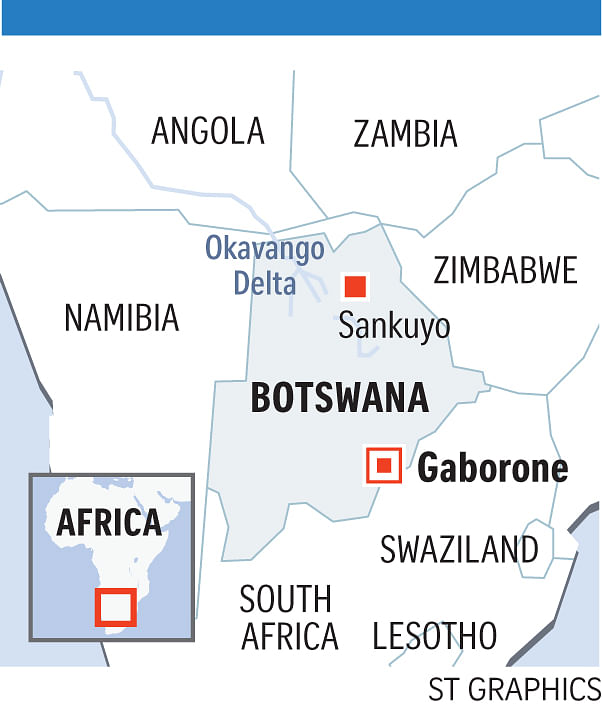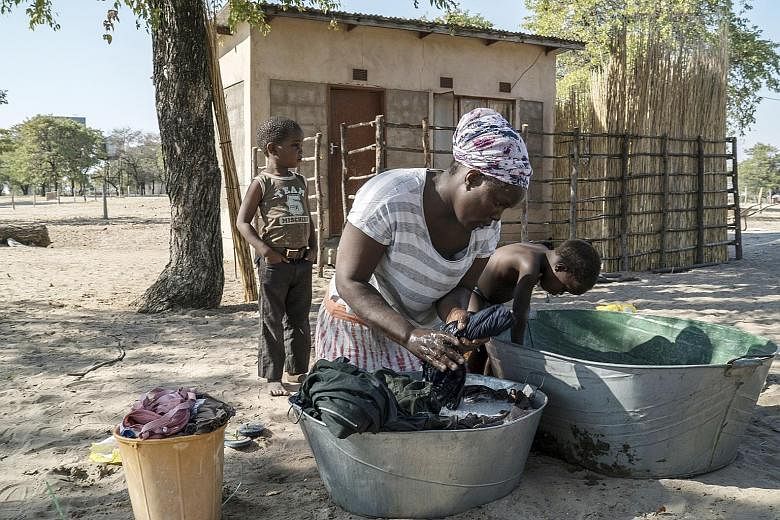SANKUYO (Botswana) • Lions have been coming out of the surrounding bush, prowling around homes and a small health clinic, to snatch goats and donkeys from the heart of this village on the edge of one of Africa's great inland deltas. Elephants, too, are becoming frequent, unwelcome visitors, gobbling up the beans, maize and watermelons that took farmers months to grow.
Since Botswana banned trophy hunting two years ago, remote communities like Sankuyo have been at the mercy of growing numbers of wild animals that are hurting livelihoods and driving terrified villagers into their homes at dusk.
The hunting ban has also meant a precipitous drop in income. Over the years, villagers had used money from trophy hunters, mostly Americans, to install toilets and water pipes, build houses for the poorest, and give scholarships to the young and pensions to the old.

Calls to curb trophy hunting across Africa have risen since a lion in Zimbabwe, named Cecil by researchers tracking it, was killed in July by a US dentist.
Several airlines have stopped transporting trophies from hunts, and lawmakers in New Jersey have introduced legislation that would further restrict their import into the United States.
But in Sankuyo and other rural communities living near the wild animals, many are calling for a return to hunting.
"Before, when there was hunting, we wanted to protect those animals because we knew we earned something out of them," said Mr Jimmy Baitsholedi Ntema, a villager in his 60s. "Now we don't benefit at all from the animals. The elephants and buffaloes leave after destroying our ploughing fields during the day. Then, at night, the lions come into our kraals."
Early last year, sparsely populated Botswana became one of a few African countries with abundant wildlife to put an end to trophy hunting. Botswana President Seretse Khama Ian Khama, a staunch defender of animal rights, stated that hunting was no longer compatible with wildlife conservation and urged communities like Sankuyo to switch to photographic tourism.
But Botswana is an outlier. Government officials and conservationists in most African countries staunchly support trophy hunting, including Zambia, which is going back to hunting after a short-lived suspension.
Sankuyo, a village of around 700 people, sits just east of the Okavango Delta in northern Botswana, which has one of the richest concentrations of wildlife in Africa.
In 1996, Sankuyo signed on to a community-based natural resources programme that focused on hunting and was supported by the US government. In 2010, Sankuyo earned nearly US$600,000 (S$845,000) from the 120 animals that it was allowed to offer to trophy hunters that year, said Dr Brian Child of the University of Florida, who is leading a study on the impact of the ban.
Among the benefits to the community, 20 households received outdoor toilets. Standpipes were installed in courtyards, connecting 40 families to running water.
"That's what made people appreciate conservation," said Sankuyo's chief Gokgathang Timex Moalosi, 55 . "We told them, 'That lion or elephant has paid for your toilet or your standpipe.'"
Where trophy hunting benefits communities, locals are more motivated to protect wild animals as a source of revenue, experts say. But in most places without trophy hunting, they are simply considered a nuisance or danger, and locals are more likely to hunt them for food or to kill them to defend their homes.
Dr Child, an expert on wildlife management in Africa, said trophy hunting had failed to benefit many communities because of mismanagement and corruption. But in the countries where trophy hunting had worked well - Botswana, until the ban; Namibia; and Zimbabwe, until its economy collapsed in the past decade - it had accomplished the twin goals of generating income and protecting wild animals.
"When hunting was introduced, we actually ended up killing fewer animals," Dr Child said. "That's the irony."
NEW YORK TIMES

